
Laiki Geitonia: The Heartbeat of Old Nicosia
Laiki Geitonia is a charming, pedestrian-only neighborhood in the heart of Nicosia, Cyprus. It's a beautifully preserved area that takes you back in time with its narrow, winding streets and traditional Cypriot architecture. The well-maintained buildings, some dating back to the 18th century, are adorned with colorful shutters and bougainvillea, creating a picturesque setting for leisurely strolls. Here, modern life blends seamlessly with history. Among the quaint houses, you'll find an array of shops selling local crafts, souvenirs, and handmade jewelry. The vibrant atmosphere is complemented by an assortment of cafes and tavernas where you can sample delicious Cypriot cuisine. Whether you're sipping a traditional Cypriot coffee or enjoying a plate of meze, the culinary experience is bound to be unforgettable. Laiki Geitonia is also home to several small museums and art galleries, offering a glimpse into the rich cultural tapestry of Cyprus. From the Ethnological Museum to the Handicrafts Centre, there's plenty to explore and learn. In addition, the neighborhood frequently hosts cultural events and festivals, making it a lively spot year-round. Laiki Geitonia is more than just a tourist destination; it's a living, breathing piece of Nicosia's history.
Local tips in Laiki Geitonia
- Wear comfortable shoes; the cobblestone streets are beautiful but can be uneven.
- Visit in the early morning or late afternoon to avoid the midday heat and crowds.
- Bring cash, as some smaller shops and eateries may not accept credit cards.
- Don't miss the local crafts shops for unique souvenirs and handmade jewelry.
- Check the local event calendar for cultural festivals and special events.
Laiki Geitonia: The Heartbeat of Old Nicosia
Laiki Geitonia is a charming, pedestrian-only neighborhood in the heart of Nicosia, Cyprus. It's a beautifully preserved area that takes you back in time with its narrow, winding streets and traditional Cypriot architecture. The well-maintained buildings, some dating back to the 18th century, are adorned with colorful shutters and bougainvillea, creating a picturesque setting for leisurely strolls. Here, modern life blends seamlessly with history. Among the quaint houses, you'll find an array of shops selling local crafts, souvenirs, and handmade jewelry. The vibrant atmosphere is complemented by an assortment of cafes and tavernas where you can sample delicious Cypriot cuisine. Whether you're sipping a traditional Cypriot coffee or enjoying a plate of meze, the culinary experience is bound to be unforgettable. Laiki Geitonia is also home to several small museums and art galleries, offering a glimpse into the rich cultural tapestry of Cyprus. From the Ethnological Museum to the Handicrafts Centre, there's plenty to explore and learn. In addition, the neighborhood frequently hosts cultural events and festivals, making it a lively spot year-round. Laiki Geitonia is more than just a tourist destination; it's a living, breathing piece of Nicosia's history.
Iconic landmarks you can’t miss
Eleftheria Square
Explore Eleftheria Square, a vibrant park in Nicosia, Cyprus, blending history, culture, and relaxation in a picturesque setting.
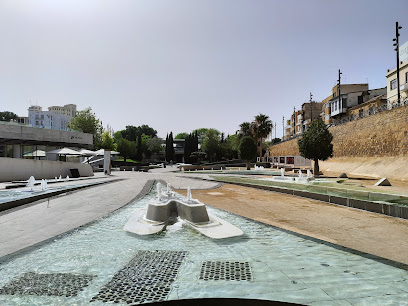
Ledra Street
Discover the vibrant atmosphere of Ledra Street, where history meets modern shopping in the heart of Nicosia, Cyprus.
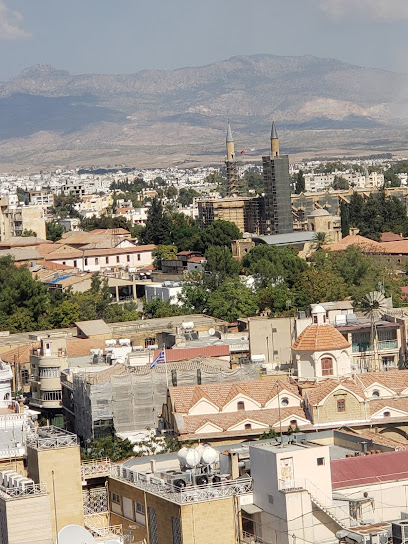
Shacolas Tower Museum and Observatory
Discover Nicosia's rich history and breathtaking views at Shacolas Tower Museum and Observatory, a must-see destination for every traveler.
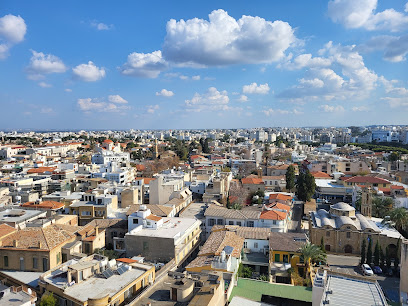
The Leventis Municipal Museum of Nicosia
Explore the rich history and cultural heritage of Cyprus at The Leventis Municipal Museum of Nicosia, a captivating journey through time.
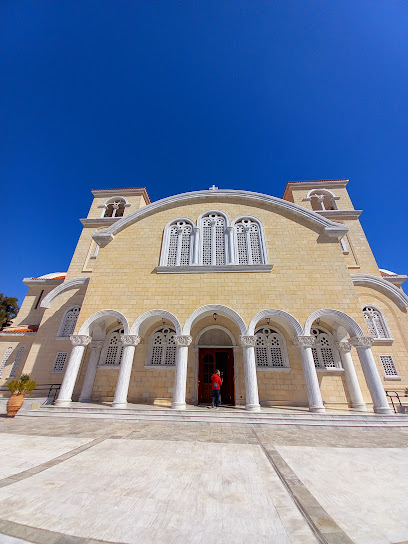
The Liberty Monument
Explore the Liberty Monument in Nicosia, a striking memorial honoring the struggle for freedom in Cyprus, steeped in history and culture.
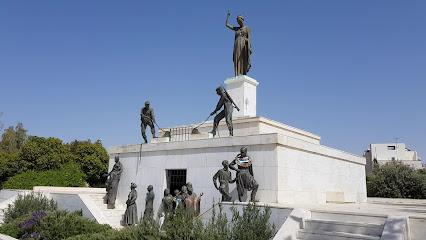
A. G. Leventis Gallery
Experience modern art at the A. G. Leventis Gallery in Nicosia, showcasing Cyprus's rich cultural heritage through exquisite collections and exhibitions.
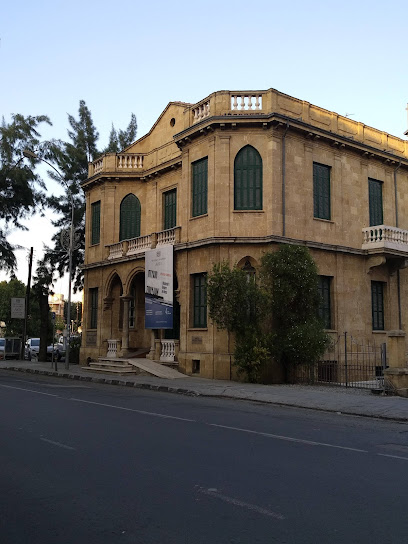
The House of Hadjigeorgakis Kornesios - Ethnological Museum
Explore the opulent 18th-century mansion of Hadjigeorgakis Kornesios, offering a unique glimpse into Ottoman-era Nicosia and Cypriot ethnology.
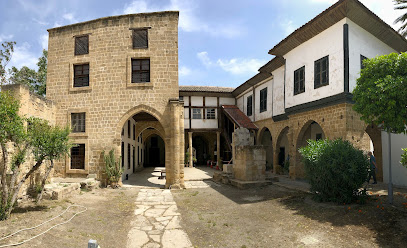
Nicosia Old City
Explore Nicosia's Old City: A historic Cypriot capital brimming with culture, ancient walls, museums, and a unique blend of traditions.
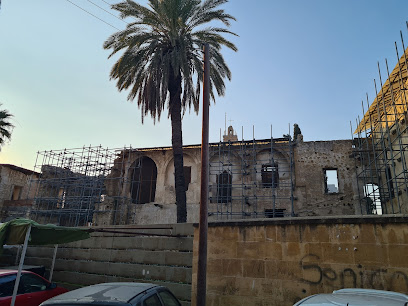
Laiki Gitonia
Explore Laiki Gitonia, Nicosia's traditional market, where local crafts, delicious foods, and vibrant culture come together in a captivating experience.
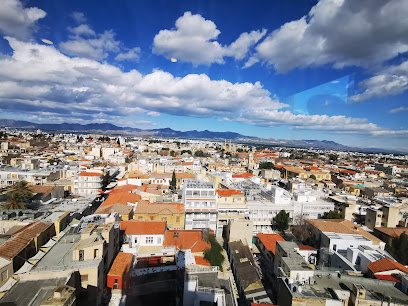
Archaeological Site of Palaion Demarcheion
Uncover Nicosia's history at the Archaeological Site of Palaion Demarcheion, where Byzantine and Medieval ruins whisper tales of Cyprus's past.
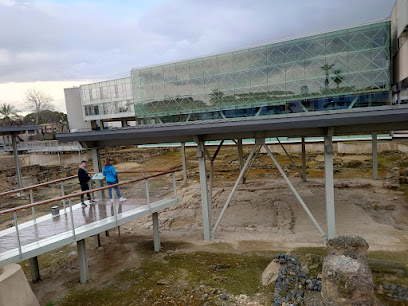
The Christmas Village - Laiki Gitonia
Discover the enchanting Christmas Village - Laiki Gitonia in Nicosia, Cyprus, where festive spirit meets rich culture and local charm.
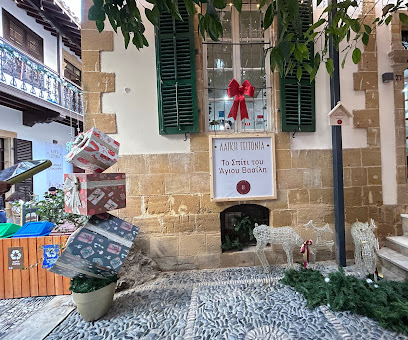
Unmissable attractions to see
Shacolas Tower Museum and Observatory
Discover Nicosia from above! Explore history and panoramic views at the Shacolas Tower Museum and Observatory, a landmark offering a unique perspective on Cyprus’s capital.
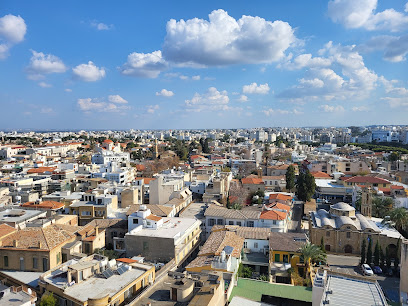
The Leventis Municipal Museum of Nicosia
Explore 5,000 years of Nicosia's history at this award-winning museum, showcasing artifacts, costumes, and more in the heart of the old city.
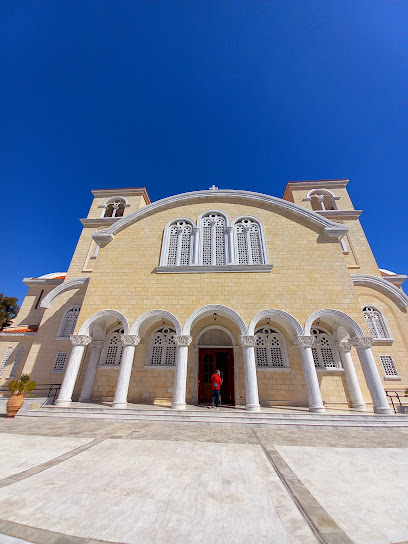
A. G. Leventis Gallery
Explore 400 years of European, Greek, and Cypriot art in a modern, eco-friendly gallery in the heart of Nicosia. A cultural gem for art lovers.
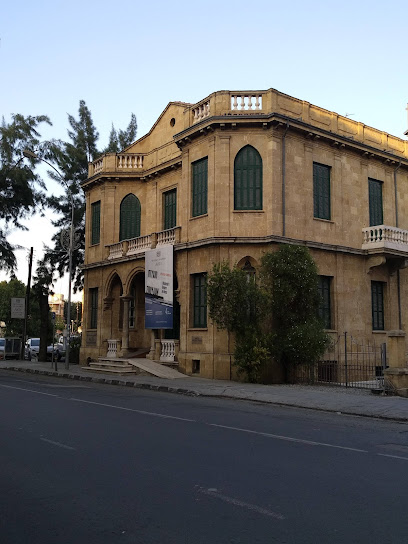
Nicosia Municipal Park
Discover a tranquil escape in the heart of Nicosia at the Municipal Park, offering lush greenery, cultural events, and a peaceful retreat for all.
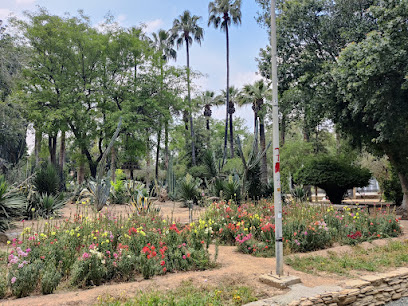
Nicosia Old City
Discover Nicosia Old City: a historic Cypriot capital where ancient walls embrace a vibrant blend of cultures and traditions.
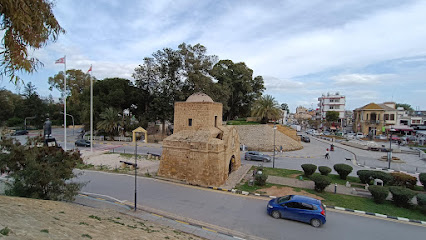
Museum of the National Struggle
Explore Cyprus's fight for independence at the Museum of the National Struggle in Nicosia, featuring historical artifacts and stories of resilience.
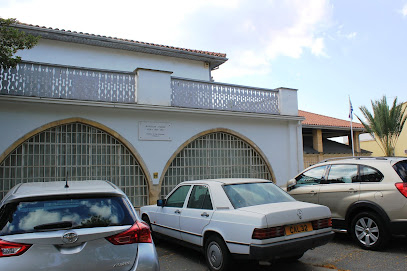
Fairy Tale Museum
Discover a world of enchantment at Nicosia's Fairy Tale Museum, where imagination comes to life through interactive exhibits and timeless stories.
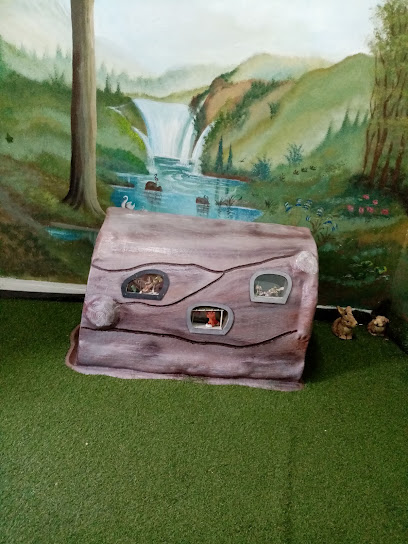
The Christmas Village - Laiki Gitonia
Experience the magic of Christmas in Nicosia's historic Laiki Gitonia, where festive traditions meet Cypriot culture in a charming village setting.
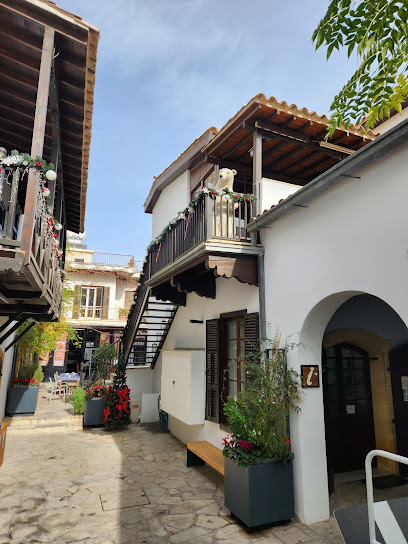
Essential places to dine
Piatsa Gourounaki
Experience authentic Cypriot flavors at Piatsa Gourounaki, where delicious meat dishes meet warm hospitality in the heart of Nicosia.
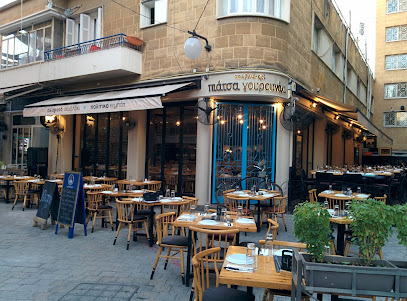
Piatsa Gourounaki Express
Discover authentic Cypriot cuisine at Piatsa Gourounaki Express in Nicosia - where tradition meets flavor in every bite.
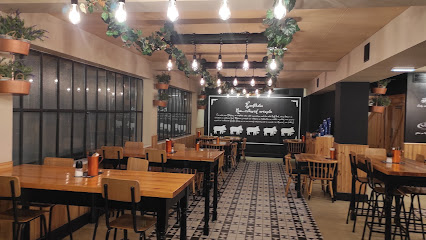
Avo Armenian Food
Discover authentic Armenian flavors at Avo Armenian Food in Nicosia – where every dish tells a story.
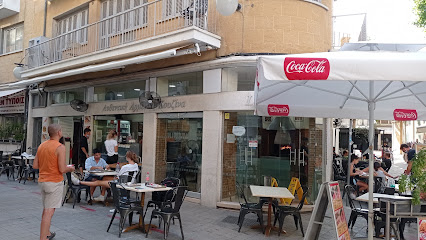
Fanous Lebanese Restaurant
Experience authentic Lebanese flavors at Fanous Restaurant in Nicosia - where tradition meets taste in every bite.
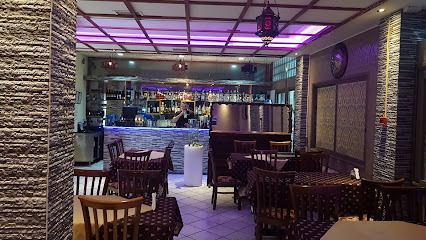
Il Forno Restaurant
Experience authentic Italian flavors at Il Forno Restaurant in Nicosia – where every meal is a celebration of culinary tradition.
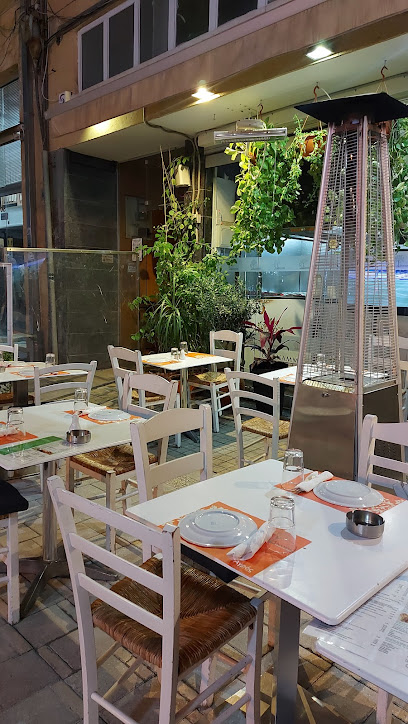
Brasserie Au Bon Plaisir
Experience exquisite French cuisine at Brasserie Au Bon Plaisir in Nicosia, featuring steakhouse specialties and fresh seafood paired with fine wines.
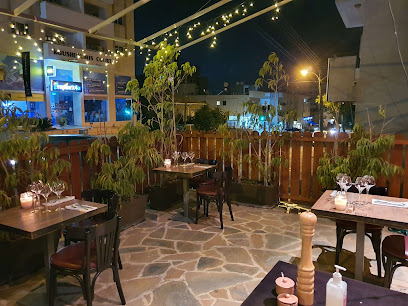
Piazza Tavern
Experience authentic Cypriot cuisine at Piazza Tavern in Nicosia—where tradition meets taste in a delightful setting.
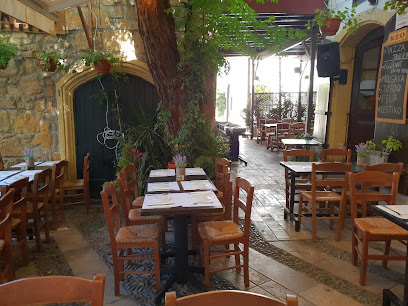
Gaffiero House
Discover the essence of Cyprus at Gaffiero House - where tradition meets taste in every dish.
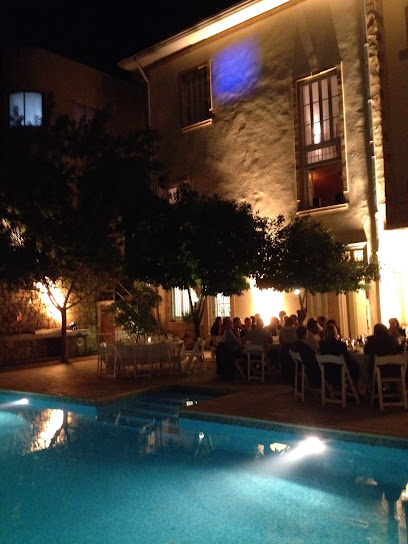
Αρχοντικό Εστιατόριο
Experience authentic Cypriot cuisine at Αρχοντικό Εστιατόριο in Nicosia – where tradition meets taste in every delightful bite.
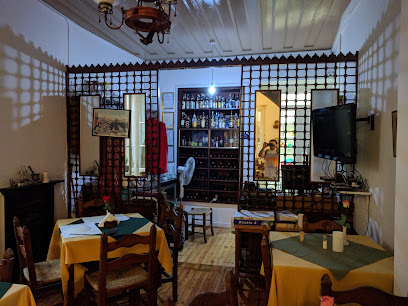
Sri Lankan Restaurant
Discover authentic Sri Lankan cuisine in Nicosia with vibrant flavors and warm hospitality that brings a taste of the island nation to Cyprus.

Markets, malls and hidden boutiques
Le Monde d'Amélie
Discover unique handmade gifts and decor at Le Monde d'Amélie, a charming gift shop in the heart of Nicosia, Cyprus.
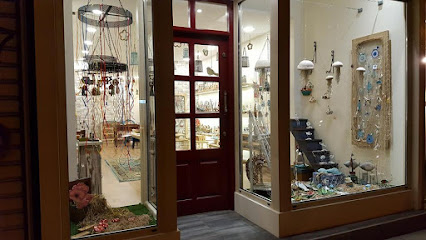
Da Vinci Handmade Lace-Center
Explore the art of handmade lace at Da Vinci Handmade Lace-Center in Nicosia, where tradition meets elegance in every stitch.
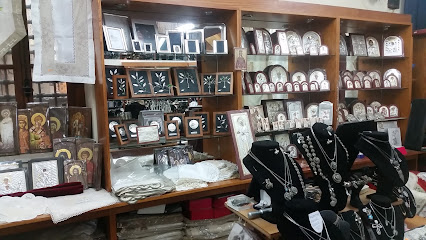
Etsi ki allios - Έτσι κι Αλλιώς
Discover unique gifts and local handicrafts at Etsi ki allios, a charming shop in Nicosia, Cyprus, perfect for souvenirs and keepsakes.
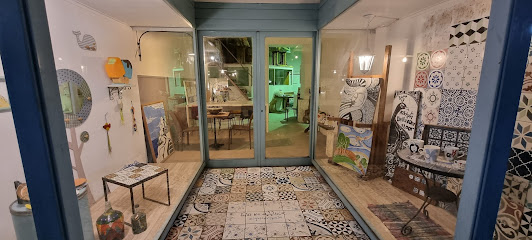
Omonoia 29M Boutique
Discover stylish fashion and unique clothing collections at Omonoia 29M Boutique in Nicosia, Cyprus, a must-visit for all fashion lovers.
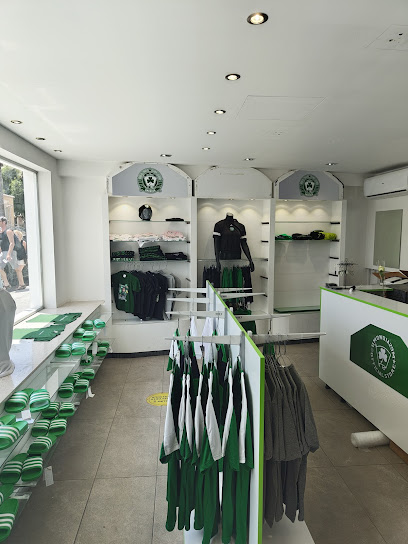
FIRST BOUTIQUE 360 NICOSIA
Explore FIRST BOUTIQUE 360 in Nicosia for a unique blend of contemporary fashion and Cypriot artistry, perfect for every discerning shopper.
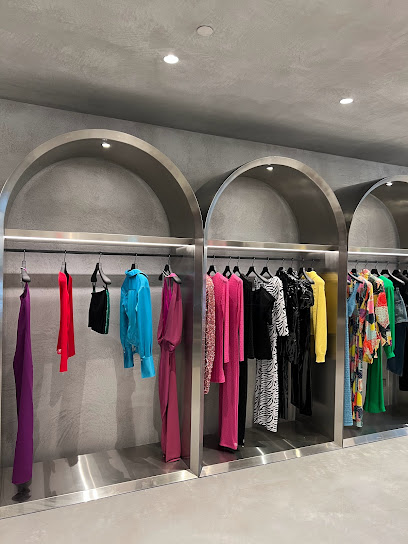
Online Boutique Store in Nicosia, Cyprus
Explore Nicosia's chic online boutique for exclusive fashion and accessories, showcasing local craftsmanship and contemporary designs.

BAZAR
Explore BAZAR in Nicosia for authentic Cypriot products, handcrafted souvenirs, and a taste of local culture in an inviting atmosphere.

Essential Buys
Discover local treasures and unique handcrafted items at Essential Buys in Nicosia, a vibrant shopping destination for every traveler.

Carpisa Ledras
Explore the stylish world of Carpisa Ledras in Nicosia, Cyprus—where fashion meets functionality in a vibrant shopping experience.

Lambusarcollection
Explore the rich history of Cyprus through unique antiques at Lambusarcollection in Nicosia, a must-visit for culture enthusiasts.

Essential bars & hidden hideouts
New Division
Experience the vibrant nightlife of Nicosia at New Division, a trendy bar with a beautiful garden and a lively atmosphere.
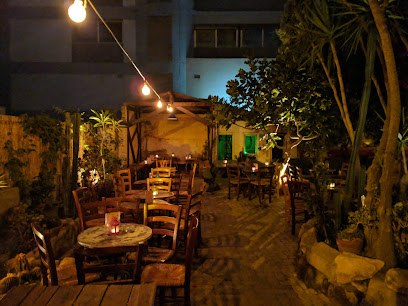
Korniza Baroque
Experience the vibrant nightlife and artistic ambiance of Korniza Baroque, a must-visit bar and cafe in Nicosia, Cyprus.
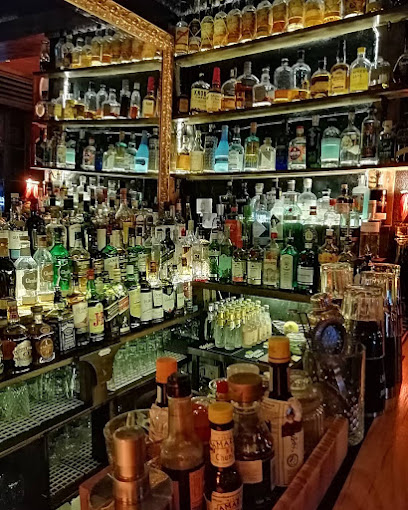
Plato's Bar
Discover the vibrant nightlife of Nicosia at Plato's Bar, where eclectic drinks meet a friendly atmosphere in the heart of the old town.
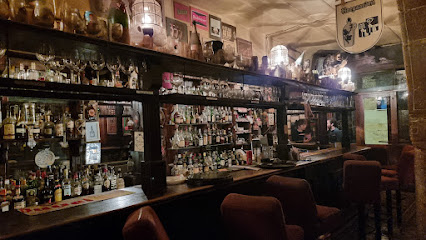
Silver Star Bar
Experience the vibrant nightlife at Silver Star Bar, a top cocktail and wine destination in Nicosia, Cyprus, perfect for socializing and unwinding.
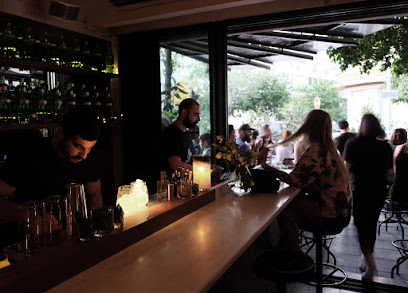
Lola Bar
Experience the vibrant nightlife at Lola Bar in Nicosia, Cyprus, with expertly crafted cocktails and a lively atmosphere perfect for unwinding.
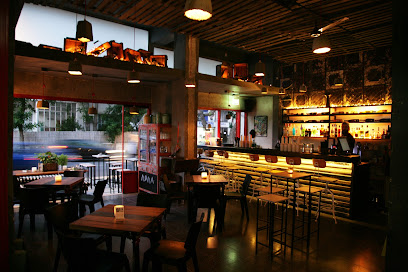
Seven Monkeys The Bar
Discover Nicosia's vibrant nightlife at Seven Monkeys The Bar, where craft cocktails and a lively atmosphere await every visitor.
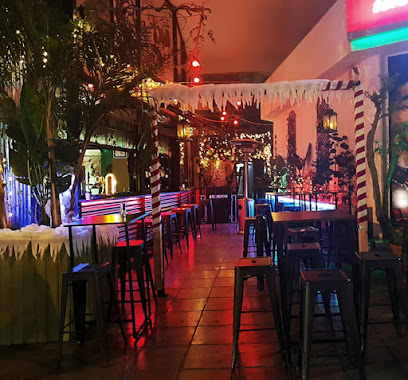
The Ginery
Experience the vibrant nightlife of Nicosia at The Ginery, a top bar offering handcrafted cocktails and a lively atmosphere.
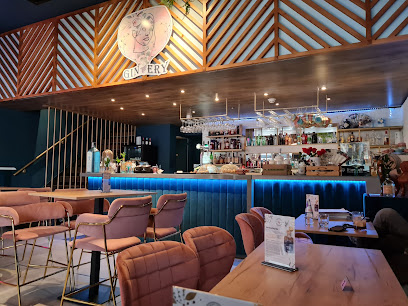
Tafjak Cafe & Bar
Discover the vibrant atmosphere of Tafjak Cafe & Bar in Nicosia, offering exquisite cocktails and a taste of local culture.
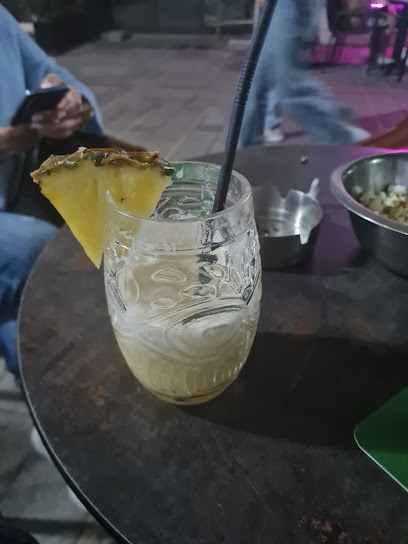
Ouzoperpatimata
Discover the lively spirit of Nicosia at Ouzoperpatimata, where delightful drinks and a warm atmosphere await you.
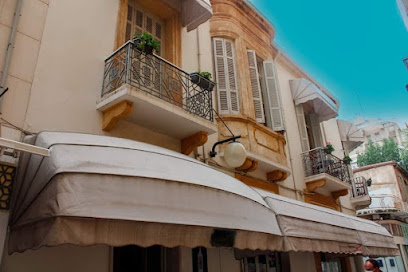
GLUHWEIN BAR - Mulled Wine - Ζεστό Κρασί
Discover the warmth of mulled wine at the GLUHWEIN BAR, a cozy gem in Nicosia, Cyprus, perfect for relaxation and savoring unique flavors.
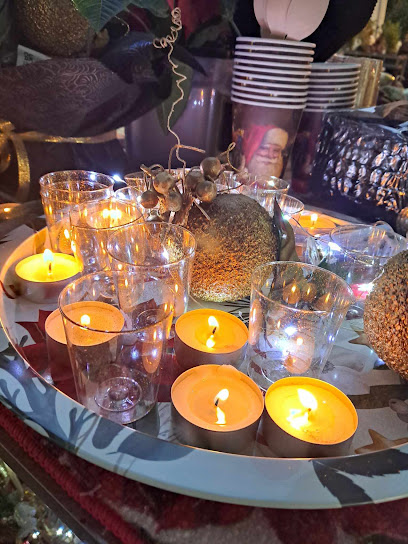
Local Phrases
-
- HelloΓεια σας
[Yia sas] - GoodbyeΑντίο
[Adio] - YesΝαι
[Ne] - NoΌχι
[Ochi] - Please/You're welcomeΠαρακαλώ
[Parakalo] - Thank youΕυχαριστώ
[Efharisto] - Excuse me/SorryΣυγγνώμη
[Signomi] - How are you?Πώς είσαι;
[Pos ise;] - Fine. And you?Καλά. Εσύ;
[Kala. Esi;] - Do you speak English?Μιλάτε Αγγλικά;
[Milate Agglika;] - I don't understandΔεν καταλαβαίνω
[Den katalaveno]
- HelloΓεια σας
-
- I'd like to see the menu, pleaseΘα ήθελα να δω το μενού, παρακαλώ
[Tha ithela na do to menu, parakalo] - I don't eat meatΔεν τρώω κρέας
[Den troo kreas] - Cheers!Υγεία!
[Ygeia!] - I would like to pay, pleaseΘα ήθελα να πληρώσω, παρακαλώ
[Tha ithela na plirosou, parakalo]
- I'd like to see the menu, pleaseΘα ήθελα να δω το μενού, παρακαλώ
-
- Help!Βοήθεια!
[Voithia!] - Go away!Φύγε!
[Fiye!] - Call the Police!Καλέστε την αστυνομία!
[Kaleste tin astinomia!] - Call a doctor!Καλέστε γιατρό!
[Kaleste giatro!] - I'm lostΈχω χαθεί
[Eho hthi] - I'm illΕίμαι άρρωστος
[Ime arrostos]
- Help!Βοήθεια!
-
- I'd like to buy...Θα ήθελα να αγοράσω...
[Tha ithela na agoraso...] - I'm just lookingΑπλά κοιτάω
[Apla kitao] - How much is it?Πόσο κοστίζει;
[Poso kostizi;] - That's too expensiveΑυτό είναι πολύ ακριβό
[Afto ine poli akribo] - Can you lower the price?Μπορείτε να μειώσετε την τιμή;
[Borite na miosete tin timi;]
- I'd like to buy...Θα ήθελα να αγοράσω...
-
- What time is it?Τι ώρα είναι;
[Ti ora ine;] - It's one o'clockΕίναι μία ώρα
[Ine mia ora] - Half past (10)Μισή (10)
[Misi (10)] - MorningΠρωί
[Proi] - AfternoonΑπόγευμα
[Apoyevma] - EveningΒράδυ
[Vradi] - YesterdayΧθες
[Hthes] - TodayΣήμερα
[Simera] - TomorrowΑύριο
[Avrio] - 1Ένα
[Ena] - 2Δύο
[Dyo] - 3Τρία
[Tria] - 4Τέσσερα
[Tessera] - 5Πέντε
[Pente] - 6Έξι
[Exi] - 7Εφτά
[Efta] - 8Οκτώ
[Okto] - 9Εννέα
[Ennea] - 10Δέκα
[Deka]
- What time is it?Τι ώρα είναι;
-
- Where's a/the...?Πού είναι ένα/το...;
[Pou ine ena/to...;] - What's the address?Ποια είναι η διεύθυνση;
[Pia ine i diefthinsi;] - Can you show me (on the map)?Μπορείτε να μου δείξετε (στο χάρτη);
[Borite na mou dixete (sto charti);] - When's the next (bus)?Πότε είναι το επόμενο (λεωφορείο);
[Pote ine to epomeno (leoforeio);] - A ticket (to ....)Ένα εισιτήριο (για...);
[Ena isitirio (ya...);]
- Where's a/the...?Πού είναι ένα/το...;
History of Laiki Geitonia
-
Laiki Geitonia's history can be traced back to the Ottoman period, when it began to develop as a residential area. The architecture of the neighborhood reflects typical Ottoman influences, with narrow streets and traditional houses adorned with wooden balconies. During this time, the area became known for its vibrant marketplace, where locals gathered to buy and sell goods, establishing a sense of community.
-
The British occupation of Cyprus from 1878 to 1960 brought significant changes to Laiki Geitonia. The British administration initiated urban planning efforts, which led to the preservation of many historic buildings. The neighborhood became a focal point for cultural and social activities, with the establishment of cafes and shops that catered to both locals and expatriates. This period saw a blending of local Cypriot culture with British colonial influences, shaping the community's identity.
-
The Turkish invasion of Cyprus in 1974 had a profound impact on Laiki Geitonia and the city of Nicosia as a whole. The division of the city created a stark contrast between the two sides, leading to the abandonment of many homes and businesses in the area. However, Laiki Geitonia remained a symbol of resilience, with efforts made to preserve its heritage and promote intercommunal dialogue in the face of adversity.
-
In the years following the division, Laiki Geitonia underwent a significant restoration process aimed at revitalizing the neighborhood. The government and various organizations worked together to restore the area’s unique architecture and promote it as a cultural hub. Today, Laiki Geitonia is known for its vibrant arts scene, traditional crafts, and local cuisine, attracting both tourists and locals who seek to experience the rich cultural tapestry of Nicosia.
-
Today, Laiki Geitonia serves as a testament to Nicosia’s historical and cultural evolution. The neighborhood features a blend of traditional and contemporary influences, with art galleries, boutique shops, and cafes lining its charming streets. Events and festivals often take place in the area, celebrating Cypriot culture and heritage, making it a lively destination for visitors exploring the rich history of the city.
Laiki Geitonia Essentials
-
Laiki Geitonia is centrally located in Nicosia, easily accessible from various neighbourhoods. From the Ledra Street border crossing, you can walk to Laiki Geitonia in about 10 minutes. If coming from the Old City, follow the signs towards the city center. Public buses also connect different neighbourhoods to the city center, with stops near Laiki Geitonia.
-
Laiki Geitonia is best explored on foot, as it is a pedestrian-friendly area filled with narrow, winding streets. There are no trains in the immediate vicinity, but local buses operate throughout Nicosia. Bicycles can be rented from various shops, and cycling is a pleasant way to navigate the area. Taxis are also available for longer distances or if you're tired from walking.
-
Laiki Geitonia is generally safe for tourists, but it is always wise to remain vigilant. Avoid poorly lit areas at night and keep your belongings secure. While there are no specific high-crime areas targeting tourists, petty theft can occur in crowded spots, so be cautious of your surroundings, especially in busy markets or during events.
-
In case of an emergency, dial 112 for police, fire, or ambulance services. Local hospitals are available for medical emergencies, and pharmacies can provide assistance for minor health issues. It is advisable to have travel insurance that covers health emergencies and to keep copies of important documents accessible.
-
Fashion: Do dress modestly when visiting churches or religious sites. Avoid overly revealing clothing. Religion: Do respect local customs and traditions. It’s advisable to cover your shoulders and knees when entering places of worship. Public Transport: Do be courteous and offer your seat to the elderly and disabled. Don't eat or drink on public transport. Greetings: Do greet with a handshake, and when meeting someone for the first time, maintain eye contact. Eating & Drinking: Do try local dishes and be open to sharing a meal with locals. Don't refuse food offered to you, as it can be seen as disrespectful.
-
To experience Laiki Geitonia like a local, start your day with a coffee at one of the traditional cafes and engage with the locals. Explore the small artisan shops selling handmade crafts and souvenirs. For a true local experience, try the street food, especially the souvlaki. Visit during the afternoon when the area is alive with street performers and local artisans showcasing their work.
Trending Landmarks in Laiki Geitonia
-
Eleftheria Square
-
Ledra Street
-
Shacolas Tower Museum and Observatory
-
The Leventis Municipal Museum of Nicosia
-
The Liberty Monument
-
A. G. Leventis Gallery
-
The House of Hadjigeorgakis Kornesios - Ethnological Museum
-
Nicosia Old City
-
Laiki Gitonia
-
Archaeological Site of Palaion Demarcheion
-
The Christmas Village - Laiki Gitonia
Nearby Cities to Laiki Geitonia
-
Things To Do in Kyrenia
-
Things To Do in Larnaca
-
Things To Do in Troodos
-
Things To Do in Famagusta
-
Things To Do in Ayia Napa
-
Things To Do in Limassol
-
Things To Do in Protaras
-
Things To Do in Pissouri
-
Things To Do in Polis Chrysochous
-
Things To Do in Paphos
-
Things To Do in Kato Paphos
-
Things To Do in Alanya
-
Things To Do in Batroun
-
Things To Do in Byblos
-
Things To Do in Beirut











